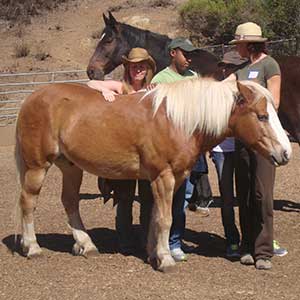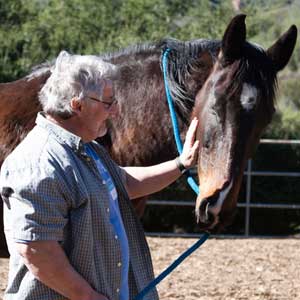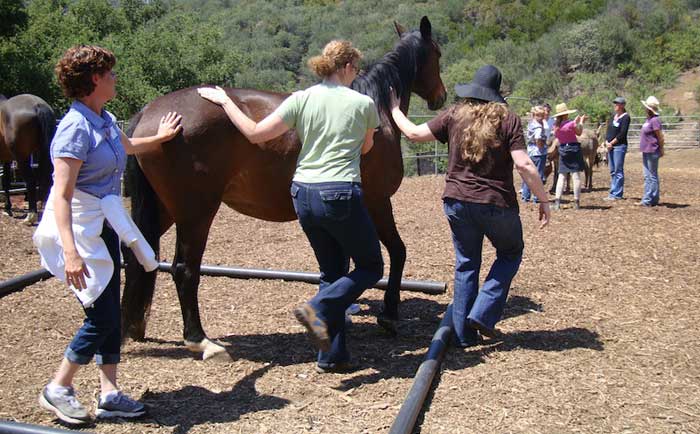Why Horses?
Unlike humans, horses are prey animals.
Instinctively, as prey animals, their survival depends on their ability to sense underlying energetic and emotional currents in their environment. They use their animal wisdom – keen sense of smell, hearing, body awareness, and vigilance – to keep themselves safe.
You could call horses ‘Masters of Mindfulness,’ because they are fully in the present moment, have no judgment, and don’t hold on to the past or project into the future. Furthermore, they are completely congruent and authentic with what they experience – in other words, what they show on the outside matches what they feel on the inside. They don’t deny or mask their feelings and our masks/personas do not fool them.

We often say that horses are like living, breathing biofeedback machines with a heart and a soul. Their keen awareness of, and ability to interpret, the body language and emotions of the animals around them not only makes them successful herd animals but enables them to be steadfast interpreters of our underlying, true feelings.
They are powerful messengers that mirror back their direct experience of us humans. And, they do so without the judgment or biases typically associated with human beings.
Because they are fully present and without agenda or judgment, they invite us to be the same, and this is where the deepest and most effective work transpires.
Like humans, horses are herd animals and rely on each other for safety and survival.

And, just like us, they have complex social dynamics. Every herd has a dominance hierarchy, or pecking order, and each member has a position. Most often, herds are lead by an alpha mare. She is responsible for guiding the herd to food, water, shelter and safety. There is also a stallion (or dominant male in domestic herds) that sire’s the herd’s offspring and is responsible for keeping intruders and predators away.
As the herd travels, the alpha female leads the way and the stallion brings up the rear, keeping the herd moving forward and protecting them from attack.
Although the leaders are important, each member of the herd plays an integral role in the cohesion and prosperity of the herd itself. It is precisely this herd mentality, the need for cooperation, teamwork and loyalty, that horses share with humans and that tends to draw humans toward horses in search of companionship.
By clearly and consistently enforcing and reinforcing the social rules, the dominant mare and stallion secure their position and maintain comfort and peace within the herd.
Dominance in this sense is not related to the physical stature or aggressiveness of a horse; the alpha female it is not the “biggest and the baddest” horse in the herd. Rather, she demonstrates her worthiness to lead the herd through wisdom, clear communication, and coherent energy.
These are the same qualities that are necessary for effective influence and leadership in human “herds.”
 As the only prey animals that have a true partnership with humans, horses occupy an unparalleled position in our lives and provide us with unique opportunities to develop and refine the skills we need to be successful and happy in life.
Whether engaged in individual or group activities, participants in our equine interactive programs work on things such as self-awareness, clear communication, relationship dynamics, teamwork, assertiveness, trust, frustration tolerance, boundaries, and confidence.
As the only prey animals that have a true partnership with humans, horses occupy an unparalleled position in our lives and provide us with unique opportunities to develop and refine the skills we need to be successful and happy in life.
Whether engaged in individual or group activities, participants in our equine interactive programs work on things such as self-awareness, clear communication, relationship dynamics, teamwork, assertiveness, trust, frustration tolerance, boundaries, and confidence. 